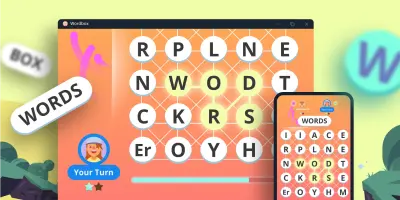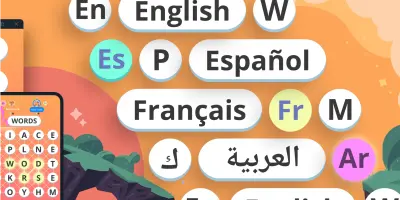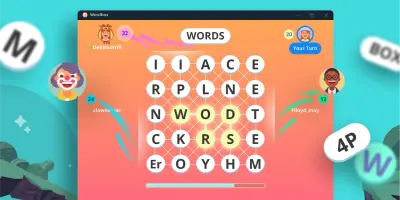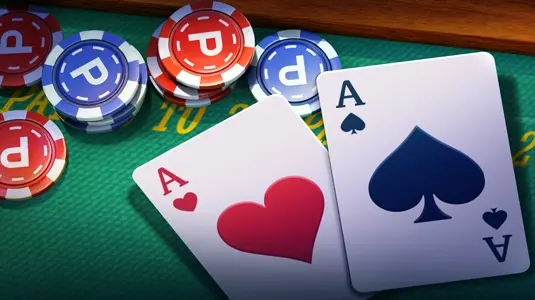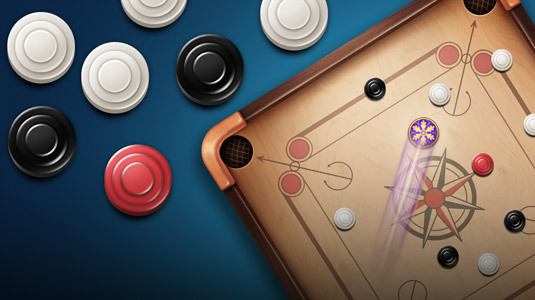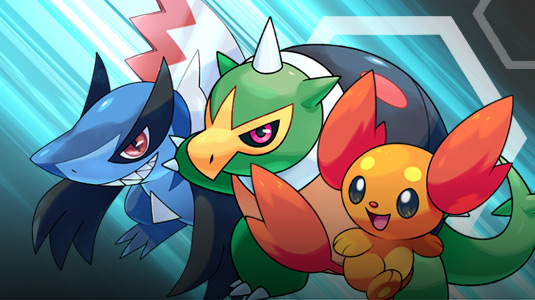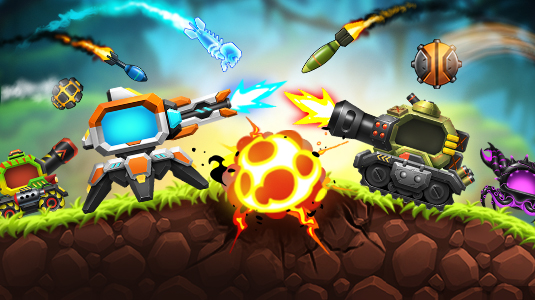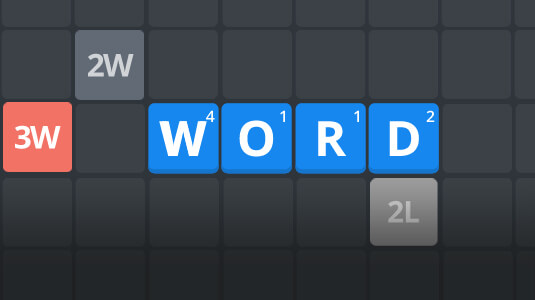Unlock your inner wordsmith. Connect letters on the grid to form words and outscore everyone round by round.
Play Wordbox online with friends for free
Gameplay
About the Game
Wordbox is a 2 to 4 player game in which players try to form words (at least three letters long) from a given set of letters on a grid.
Objective
The objective of the game is to gain more points than the other players by forming as many words with as many letters as possible.
Gameflow
Wordbox is played in sets of rounds based on the number of players.
Two Player Games last until one player has won two out of three rounds.
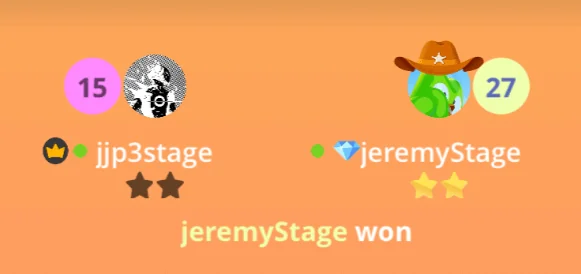
Three and four player games are played with a knock out mechanic and last until there's only one player remaining. The player with the least amount of points at the end of the round is knocked out of the game and can no longer form words or gain points.
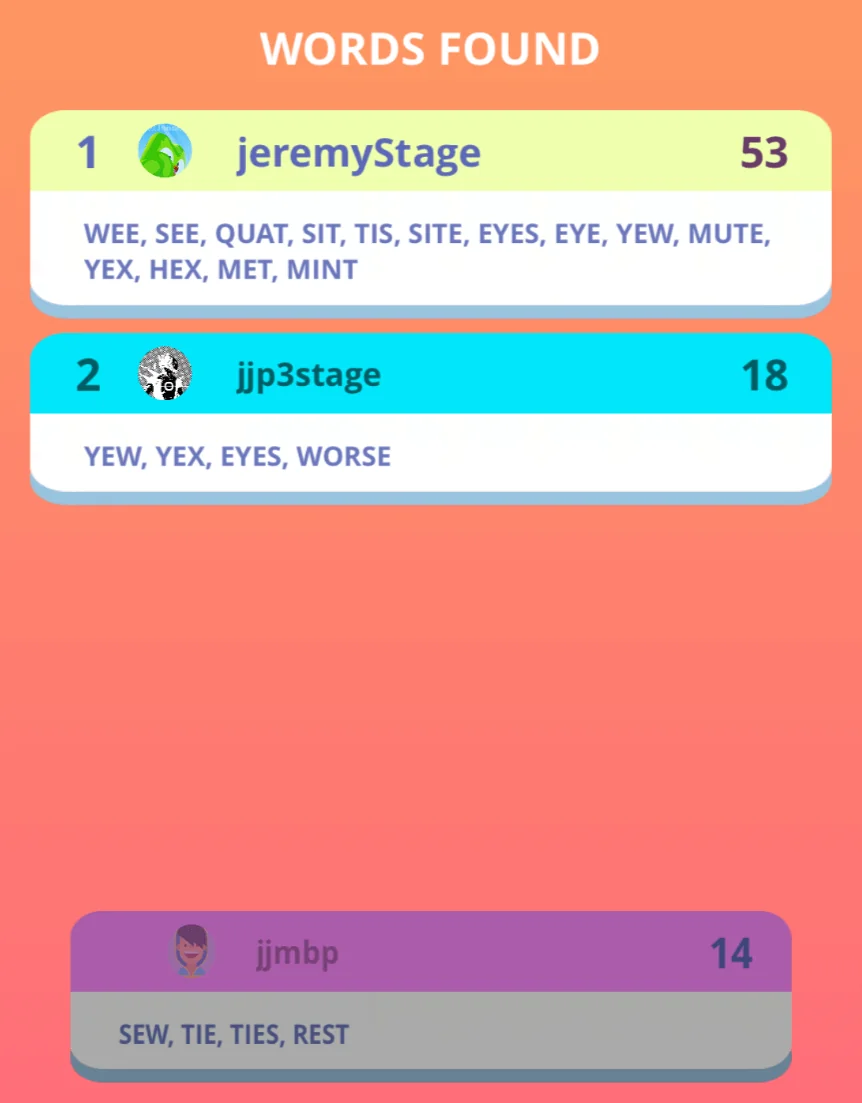
Words are formed by connecting adjacent tiles on the grid via tapping and dragging on the grid.
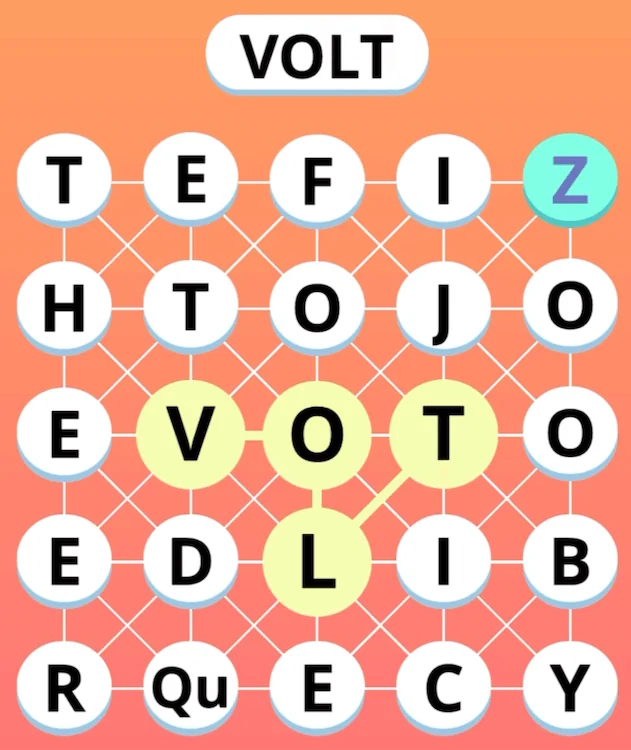
Scoring
Scoring is based upon:
Word Length:
- 3 letters = 1 point
- 4 letters = 6 points
- 5 letters = 8 points
- 6 letters = 10 points
- 7 letters = 12 points
- 8+ letters = 14 points
Bonus Tiles:
- Words formed using the blue bonus tile are awarded 3 extra points.
Words must be at least three letters long to be valid.
Credits
Game Developer: Jeremy Jackson Game Artists: Ken Tan and Macoy Gabot
Top Ranked Winners
Can I play online?
Yes. Install the Plato app on iOS, Android, or macOS to play the full catalog with friends or matchmade opponents. You can also play Ocho online in your web browser — no install needed.
Can I play with friends?
Yep. Tap Create Private Game, then share the invite link or invite from your contacts. When they tap Accept, they're seated at your table.
Is it free?
Yes — free to play and ad-free. If you buy something, it's for looks (themes, profile flair), not power.
Is it fair?
Shuffles, deals, dice, and timers run on Plato servers, not your device. Everyone plays by the same rules and no one can peek at hidden information.
Is it safe?
You can block and report from profiles or chat. Public spaces use filters and human review. Some rooms use Chat Pass to deter spam, and privacy controls let you limit who sees you online.
Live vs. turn-based: what’s the difference?
Both are turn-taking; the difference is the clock. Live uses short timers for quick back-and-forth. Turn-based gives you longer — often up to 24 hours per move in games like Chess — so you can play at your pace.
